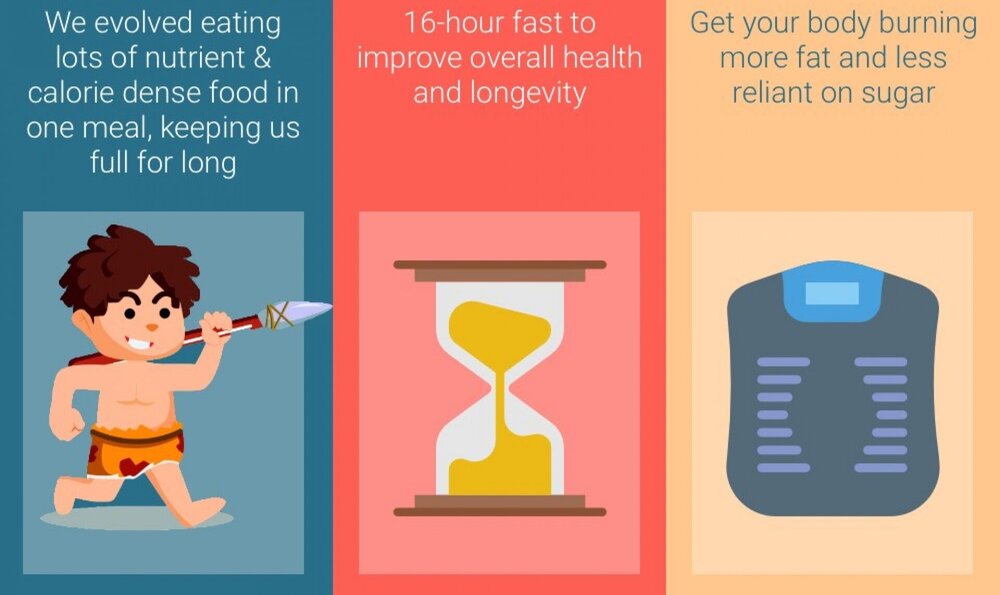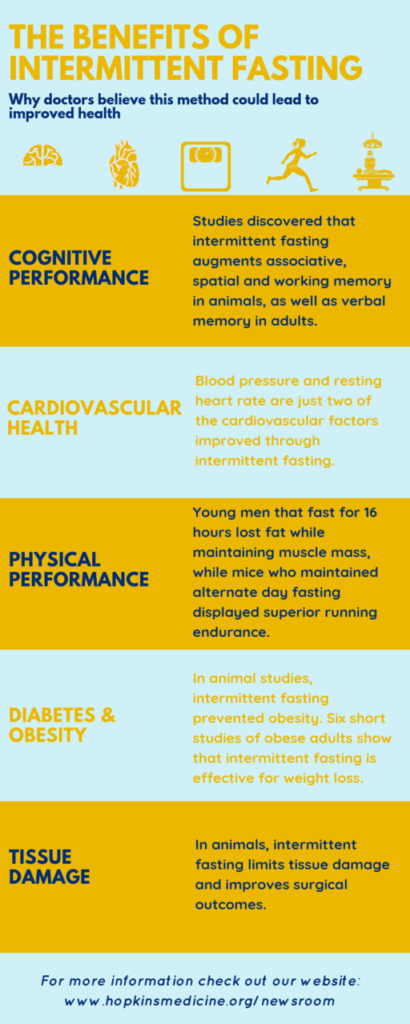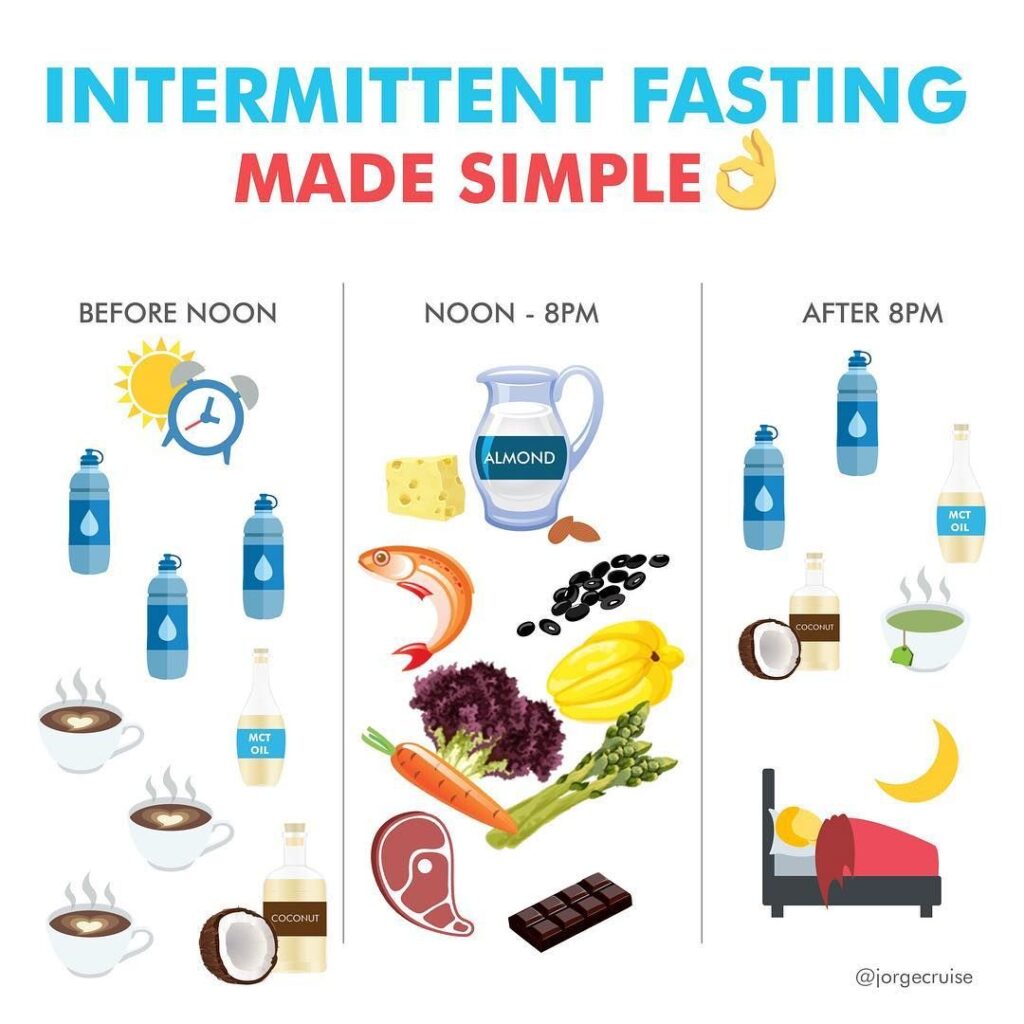Intermittent Fasting: How we can eat more for less

Intermittent fasting involves scrapping the idea of eating small amounts whenever you want and only eating once every 10 – 16 hours. The evolutionary basis behind this was that our ancestors did not eat three meals a day so by doing so, we ignore our natural digestive rhythm. I wasn’t convinced. However, there is now strong research coming out in favour of it. This post explains the health benefits of intermittent fasting.

Fasting is important is because of our metabolism or how our body breaks down food. Satchidanada Panda from the Salk Institute is one of the leading fasting scientists in the world. He states that we all have circadian cycles where certain genes are activated. If we eat all of the time, we eat when some of our genes that are necessary for breaking down our food are not active. One study at Panda’s lab found that if mice were forced to eat fats for 16 hours and then ate whatever they wanted for 8 hours, they could not gain weight. If rats were allowed to eat as much as they wanted whenever they wanted, they put on lots of extra weight and they were far more likely to develop diabetes. When mice fast, they build up enzymes that put their metabolism on ultradrive, meaning that all fats are burnt more efficiently. On the other hand, if we eat all of the time, our enzymes are not activated and there is then nothing to break down the food we take in, which then results in gaining more fat, losing more muscle and becoming more insulin insensitive. This fat gain is even further escalated when we eat fat or sugary food so it then really matters what we eat.
When we fast for over 12 hours, this gives time for our enzymes to recharge and be able to break down more food, which makes it less important what we eat. This might explain why your friend eats whatever they want and they never put on weight. This also means that we get more benefits from food when we are eating. For example, when we eat fats within our non-fasting phase, our levels of epinephrine increases, which makes us sharper. However, if we eat in the middle of this fast, our enzymes get confused and this results in them not recharging. Further evidence of this is people who do shift work. These people, such as nurses, are far more likely to develop deadly diseases such as cancer, heart disease and dementia. This is not implying that nutrition is is the sole cause but it is likely that it plays a role.

When you hear the word fasting, the first thing you think about is starving yourself while looking up pictures of food porn on Instagram. The good thing is you don’t have to change your whole lifestyle to do it. You just need to intake all of your calories within 10 hours. This means that if you wake up at 7 in the morning, you can eat breakfast at 9, lunch at 1 and dinner at 6 (or breakfast at 12 and dinner at 9). If you don’t eat again after dinner, that’s your 10 hour window achieved. It’s those late night nibbles that have the detrimental effect. And some will look at this and say to themselves that it’s still too difficult. ‘I need a snack before I go to bed’. A simple tip that will make it much easier is to go to bed earlier. You’re not thinking about food if you’re asleep and research appears to show that it’s good to be hungry! There is also still space for individualising your fast. If you can go without coffee or breakfast in the morning, hold off until the late morning and eat later in the evening. On the other foot, people who need their morning coffee should make plans to keep themselves occupied in the evening so they’re not staring at their snack drawer. And best of all, Dr. Rhonda Patrick has stated that the research indicates that we can break the routine once a week, so you don’t have to starve yourself on the weekend. Give it a go and notice the changes in your energy levels, weight gain and well being….fast!

Yours Sincerely,
The Motus Movement